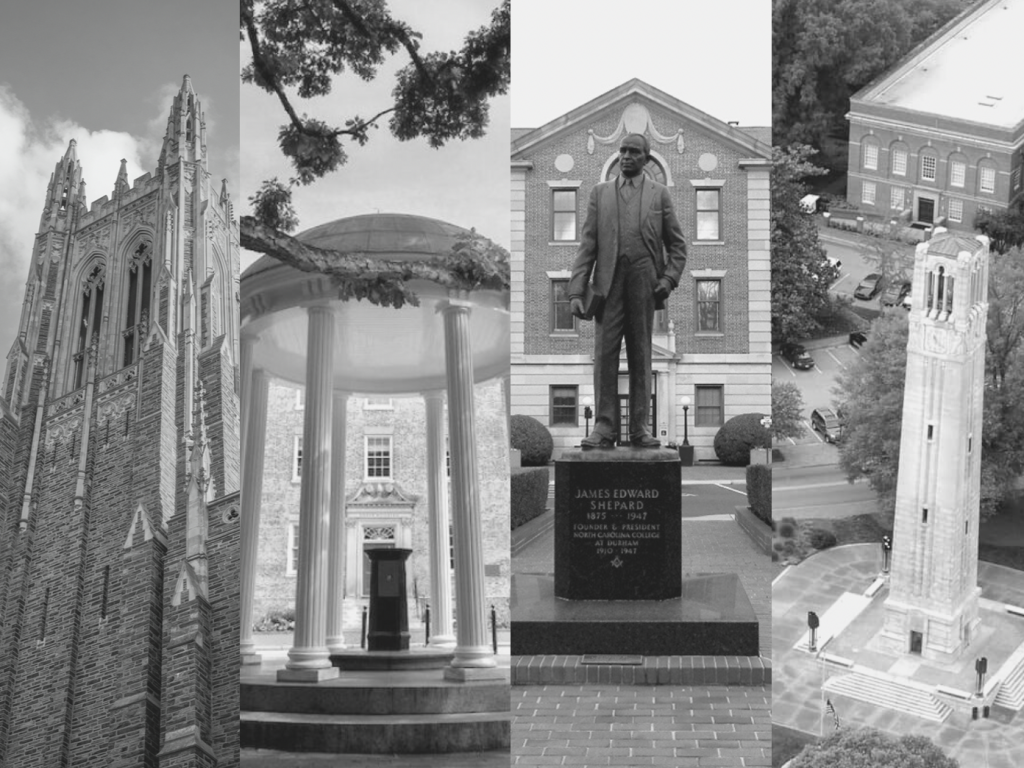
“Citizens have to be engaged and make our voices heard to have an impact on the policies that are put in place. Even when political figures change, the policies are still there,” explained Catherine Flowers, environmental health advocate and 2020 MacArthur Fellow, during a Duke in DC event on June 4th.
Flowers joined Martin Doyle, director of the Water Policy Program at Duke Nicholas Institute for Environmental Policy Solutions, Greg Gershuny, executive director of the Energy and Environment Program at the Aspen Institute and Andrew Jones III, incoming professor at Duke’s Pratt School of Engineering in the department of civil and environmental engineering for Infrastructure Priorities: Water’s Role in Promoting Equitable Planning and Investment, part of the Beyond Talking Points series on environmental justice.
When it comes to the political will to address water and sanitation infrastructure, Martin Doyle believes “technology exists to do amazing things with water – to clean it, to move it, to pump it, but it takes the political will and a fairly large amount of money and energy,” and as a result, “the technology may not as well exist.”
Due to climate change, many of the problems Americans are facing with water and sanitation are growing. It’s no longer just isolated to rural areas – Flowers mentioned that the current systems were not built to respond to climate change, which results in sunny day flooding, even in urban areas.
When we think about investing in new technologies that account for climate change, Greg Gershuny notes that in terms of research and development, “we need to think about not just what we need now, but what we need 10 years from now. When we install these technologies, they’re going to last for decades in some cases, so we’ve got to be thinking ahead.”
Environmental justice plays a significant role when we consider how all communities in the U.S. will have access to affordable and sustainable water and sanitation. Gershuny said, “for people who have clean drinking water and sanitation, it’s really easy to forget that there are a lot of people within the U.S. that don’t have access to those things… as we deploy these new technologies in the U.S. to more communities, it helps drives down the price of those technologies which then allows more communities to build them.”
A large number of federal agencies – Department of the Interior (DOI), National Oceanic and Atmospheric Administration (NOAA), Environmental Protection Agency (EPA) and Department of Housing and Urban Development (HUD) all address issues related to water. However, Doyle pointed out that, “In the end, water is local.“ State and local governments provide the vast amount of funding for water and the federal government is needed for coordination among these different entities.
Meanwhile, Flowers commended the administration for looking “at all of these issues through an equity lens.”
“What we’re seeing now is there is a correlation between people having a voice, that’s why we see a lot of voter suppression laws coming into play now, and whether or not there is going to be sanitation equity.”
Advancing technology infrastructure to provide accessible information about water is crucial to help empower communities to advocate for themselves and address their problems. “We need to be able to put the data and the science in the hands of the people so they can advocate for themselves,” added Andrew Jones, “we have 21st century and 18th century technology opportunity in the same bowl.”
The group agreed that water data and reports need to be more accessible and digestible to the general public. Doyle explained that “the things we basically communicate about water – if you wanted to design a system that was more intentionally opaque, it would be difficult to do so.”
Flowers also stated, “we’re talking about solutions, but we don’t even understand the problem yet because there has been no central collection of data.”
“People should know where their watersheds are and where their water comes from,” said Flowers, “the more we know, the more we are educated about it, the more informed our decision making can be.”
In terms of private industry’s role in both water security and environmental justice, Doyle said, “we keep hoping that big corporations and manufacturing facilities will make water-based locational decisions – that they will move to areas with sustainable water.” However, companies continue to make investments in areas known for their water insecurity.
“When major investments in something as central to our economy and national security as chip manufacturing is being placed in areas like Arizona, that clearly has water challenges it really does start to raise questions about whether we’re putting ourselves in a place where national security and water security are truly intertwined.”
Moving forward, the only way to ensure people care about these issues is to show how everyone is affected.
“One of the principles of environmental justice is you have to let the people speak for themselves and the second principle is do no harm,” Flowers explained, “we will never have equity until we have community engagement.”
By Lizzie Devitt, 6/15/21











